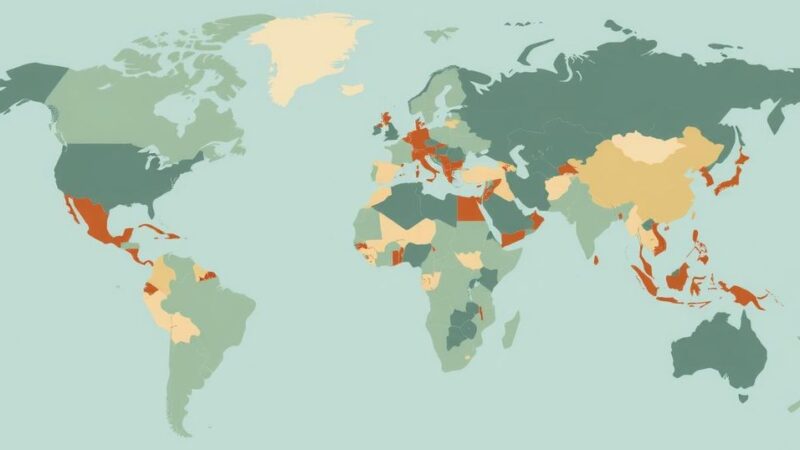A Kurdish military official denies accusations of acquiring drones from Iran, labeling them Turkish propaganda. He claims Kurdish drone development is indigenous, responding to misleading narratives following Turkish media claims. The official highlights historical tensions between Kurds and Turkey, criticizing ongoing attacks and governmental shifts, while emphasizing the need for a stable future for all Syrian citizens.
A Kurdish military official emphatically stated, during a video call with The Jerusalem Post, that Kurdish forces have not obtained drone technology from Iran, dismissing such claims as Turkish propaganda. This assertion followed an article from the Turkish news outlet Yeni Safak, which accused the Kurds of acquiring drone capabilities from Iran. The official clarified that Kurdish drone capabilities are basic and developed through local initiatives led by their fighters.
The official criticized Yeni Safak for its apparent allegiance to Turkish President Erdogan and the AKP party, alleging that the outlet seeks to distort Kurdish forces’ image and associate them with extremist regimes. He claimed that since the Turkish military has struggled to confront Kurdish fighters on the battlefield, they resort to disseminating false narratives, trying to undermine Kurdish credibility.
Regarding the current geopolitical situation, the official mentioned that Kurdish forces control 30-35% of Syria, promoting it as the safest part of the country. He asserted that the existence of a self-governing Kurdish region poses a challenge to President Erdogan’s ambitions to reshape the Middle Eastern map in line with Ottoman historical boundaries. He also noted ongoing attacks against Kurds despite their Syrian nationality and the failure of Turkish forces to push further east.
In response to the accusations from Turkish media, the Kurdish-led Syrian Democratic Forces (SDF) publicly rejected claims of reliance on Iranian drones, emphasizing their indigenous development of UAV capabilities. The SDF denounced the narrative for being misleading and aimed at fostering hostility towards them amid ongoing Turkish aggression and genocidal policies against regional peoples.
The historical animosity between Turkey and its Kurdish minority stems from ethnic tensions and issues surrounding Kurdish independence. Kurds constitute approximately 15-20% of Turkey’s population, while millions live autonomously in regions of Syria, Iran, and Iraq. The Turkish military has routinely conducted operations against Kurdish regions in Syria, labeling them as terrorist strongholds allied with the PKK, which Turkey designates as a terrorist organization. Since 2016, Turkish forces have occupied significant areas in northern Syria, typically inhabited by Kurds.
As the political climate shifts with the consolidation of Damascus’ new regime, Kurdish leadership expresses concern regarding potential repercussions from Turkish-backed factions. The official compared Turkey and Iran, both of which he described as extremist regimes, emphasizing ongoing ethnic cleansing against Kurds in Turkey. The Kurdish official conveyed that the autonomy they established poses a barrier to Turkish expansionist intentions.
The article addresses the denial from Kurdish military officials regarding claims that they received drone technology from Iran, following accusations from Turkish media. It highlights the historical tensions between Turkey and the Kurdish minority, centered around issues of ethnic identity and independence. The discussion also touches on the geopolitical challenges faced by Kurdish forces amid Turkish efforts to undermine their standing in the region.
In summary, Kurdish military representatives firmly reject claims of acquiring drones from Iran, attributing such narratives to Turkish propaganda. They assert their technological capabilities are developed independently. The backdrop of ongoing Turkish military actions against Kurdish populations in Syria reflects a complex history marked by ethnic strife, while Kurdish autonomy remains a significant impediment to Turkish regional ambitions.
Original Source: www.jpost.com






